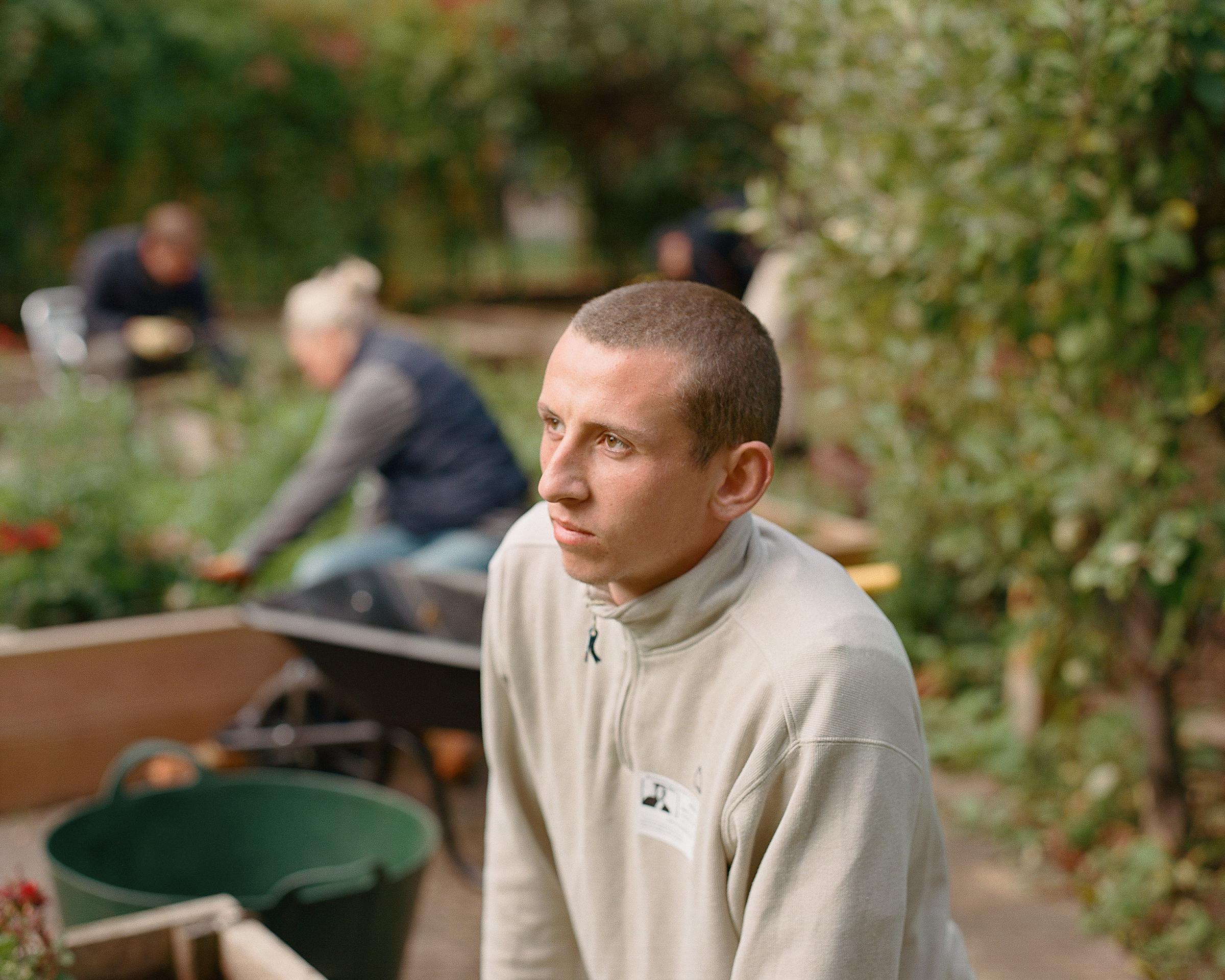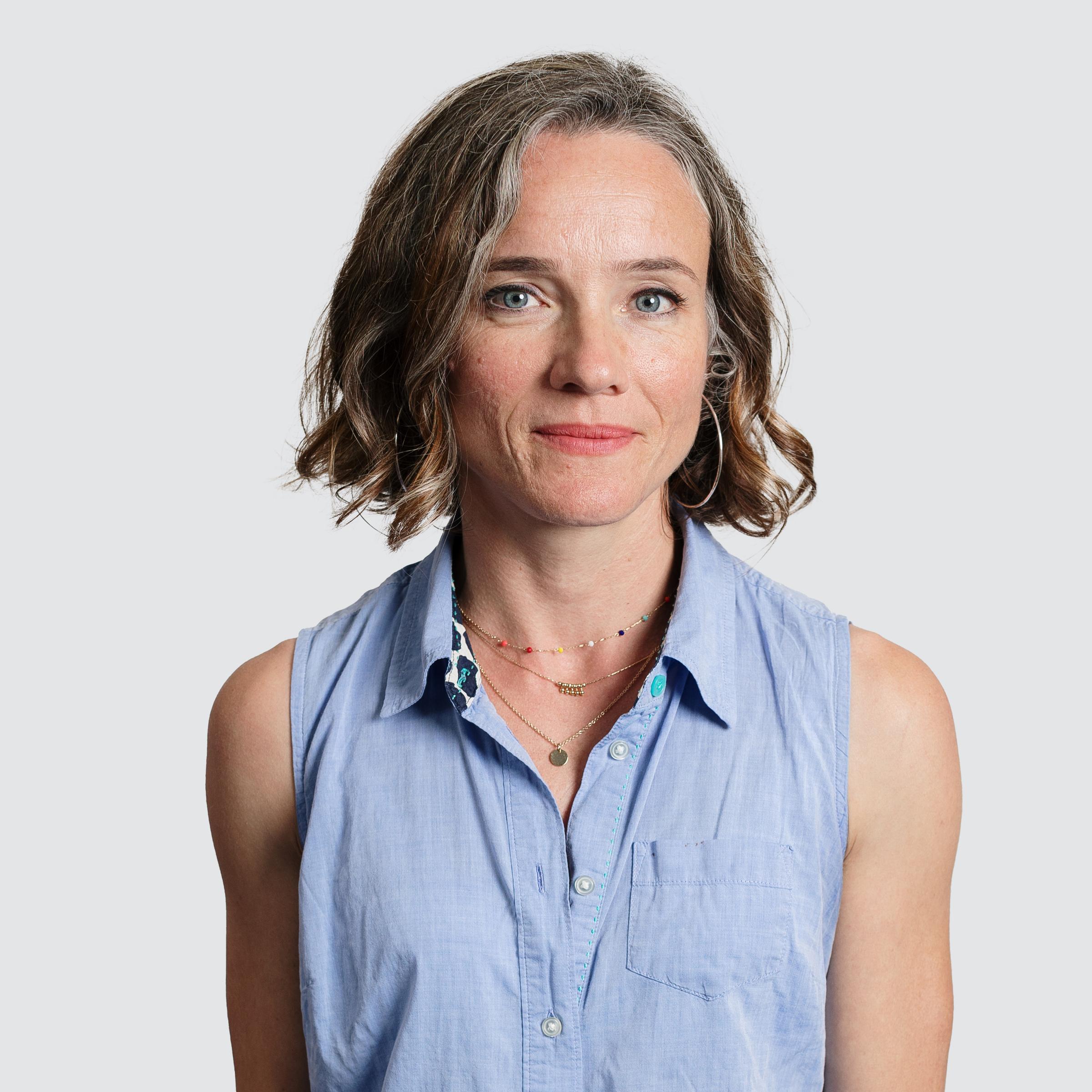Building alternative futures
Why JRF is investing in imagining and building fairer futures, alongside our work tackling issues in the present.
The one who plants trees, knowing that they will never sit in their shade, has at least started to understand the meaning of life
Rabindranath Tagore
It’s been just over six months since I started working at JRF as its Emerging Futures Director. I’ve learnt a lot (not least how to operate MS Teams, a skill I’d hoped I’d never need to gain) and I am enormously grateful to the many people I’ve had the privilege of talking to and spending time with as I shape up the work for the coming months and years. It’s been an intense period of thinking, questioning, challenging and dreaming.
One of the questions that is very present for me is whether all this thinking about the future is an indulgence, given the crisis in living standards that confronts us right now. JRF analysis shows that families in poverty will be £446 worse off as a consequence of the Chancellor’s Spring Statement. Places like Little Village, the organisation I founded and ran before joining JRF, report sharp increases in demand, and share stories of families wrapped in blankets, unable to heat their homes or cook their food, as energy bills rise steeply. In the 21st century, 6.5 million people are living in very deep poverty.
But we can’t let the urgency of this work cloud the need for much deeper work too, if we’re serious about tackling poverty. The ground is shifting beneath our feet. We have a decade at best to take action to stem the climate crisis. Add to this technological change and longer life expectancy, and it is hardly surprising that we are experiencing intensifying insecurity, inequality and polarisation. Each of these issues alone would put enormous pressure on our social institutions. Together they are exposing cracks in our economic systems that are becoming harder and harder to ignore.
So this is the task for any of us wanting to tackle poverty: urgent work, and deep work. Both need to start from a place of real ambition and belief in the possibility of change.
For example, on the urgent work, last week’s release of the HBAI statistics showed that policy decisions such as the furlough scheme, the £20 uplift in Universal Credit and change around eviction rights kept thousands of families out of poverty at the height of the pandemic. Interventions can and do make a difference: it is not inevitable that poverty rates keep rising. Organisations like JRF and the wider anti-poverty sector have our work cut out advocating for policies like uprating benefits with inflation, and CPAG’s work around the two-child limit, to protect people who are struggling, as well as calling out those policies that are making an already unacceptable situation so much worse.
On the deep work, as we face these existential threats, the task is to look for the seeds of the future in the present. Like roses growing through the cracks in the concrete, there are signs of hope to be found, even as the storm clouds gather. They hint at the possibility that rather than being in a state of terminal decline, we are instead in the midst of a deep transition. Our experience of this time is one of confusion, disorientation and exhaustion. The way things have been no longer seems to make sense.
But look carefully, and it is possible to see a new way of being emerging. The seeds can be found in many places: from energy, where we are making progress on renewables, to farming, where we are seeing a huge increase in efforts to increase biodiversity and regenerative practices. And we can also see signs of new possibilities in the social sector, with a convergence of projects around broad-based prosperity and ownership. Could the emergence of commons-based property rights be as profound as the individual property rights and enclosure that sparked so much change at the start of the industrial revolution? Could the emergence of employee-owned businesses spell the end of shareholder capitalism, as organisations understand their role in relation to the planet, to communities, and to their workers? Could community wealth-building initiatives shorten damaging global supply chains, to benefit both people and planet?
What this means for our work
JRF has an incredibly privileged position: we have political independence and an endowment of our own. We want to use this position responsibly and have been thinking hard about how we can extend and grow our role as an ‘infrastructure’ organisation, investing in work that benefits many organisations and coalitions beyond our own. We already do work in this space, from the Minimum Income Standard to co-ordinating the Keep the Lifeline campaign. As my co-director Graeme set out in his recent blog, we want to do a lot more here, in particular to open up the generation and use of insight about poverty, as well as the social and economic conditions that create it.
We also want to put more of our endowment in service of our mission, by creating a major new funding programme that will invest in nurturing and building fairer futures, and speeding up the transition to a world grounded in economic, environmental and social justice. I’ve spent the last six months exploring how we might do that, and the paper you can download at the bottom of this page pulls together the thinking about what that might mean in practice.
In many ways this focus on emerging futures takes us right back to our founding memorandum. This memorandum was shaped by Joseph Rowntree’s own observations about poverty in York. He saw the state of worker housing, and the way it incubated ill health and low morale. Instead of writing a pamphlet about these issues, he imagined how things could be different – creating a pension scheme and adult learning programmes for his factory workers, and translating his vision for ‘self-governing communities’ into a village just north of the city. Rowntree wrote of his intention to create places that others could come and see: brick-built utopias to galvanise change, and show what was possible.
Through the new fund we are creating, JRF will be bringing that kind of energy to our work again today, and asking: who gets to imagine the future? What futures do we need to support and grow? How can we support work that shows what a more equitable, sustainable and just future could look like?
It’s still early days: we’re not quite ready to launch the fund yet and the next few months will be an intense period of co-design work. However, at this stage, our view is that we should be backing five types of work:
- Building alternatives: supporting projects on the ground showing in practice what alternative futures might look like.
- Creating infrastructure: supporting work that scaffolds and nurtures emerging fields such as ownership, care, community power, and growing capacity – areas around aspects of alternative futures..
- Tackling ‘hidden wiring’: supporting work to reveal and redesign the ‘hidden wiring’ that is reinforcing aspects of today’s system and driving inequality, such as governance and tax regimes.
- Narrative shift: investing in efforts to tell the story of the transition in ways that mobilise and engage wider groups of people.
- System readiness: investing in work to prepare the ground, create the conditions, and ‘nurture the soil’, to grow capabilities in communities and places (especially those that have been marginalised) to participate in the work of imagining fairer futures.
The paper you can download at the bottom of this page sets out our thinking to date. We are sharing it as we think that many others are also grappling with this question of how to simultaneously tackle the urgent and the deep work of addressing poverty and inequality, and we hope that what we set out here is helpful to others as well.
The questions we’re asking
There’s no blueprint for this work and we are surrounded by unanswered questions that reflect the deep uncertainty of the times we live in. I find myself saying often that when we’re in fog, we need to hold hands: in other words, we can’t do this alone. So I’ll conclude by sharing four propositions we think might be important, and that I know many others are working on too:
- Often, imagination and incrementalism are pitted against each other. But we think they might be entwined practices. The 40-year period that preceded the Beveridge report was characterised by tinkering and experimentation, that paved the way to the possibility of imagining something more radical. We don’t have 40 years to work with today, so how can we enable the rapid flourishing of experiments, iteration and learning, as part of destabilising ‘the way things are now’ and liberating us to imagine more radical possibilities?
- It is no longer possible to talk about social and economic justice without also talking about environmental justice. All share a root problem of extractive practices that serve to benefit the few, and that result in a separation of human progress from our planet’s wellbeing. Some of the ideas shaping today’s emerging landscape of economic transformation have been around for decades (see for example Small Is Beautiful, or Cradle to Cradle Thinking). Perhaps what’s clearer now is the possibility of knitting them together in the face of the climate crisis we’re confronting: what more can we do to support this pattern?
- The way we understand risk needs to be fundamentally reshaped, in an era that is characterised by contingency, complexity and uncertainty. There is of course comfort in the idea that risks are things we can know about and manage. But in this moment in time we need to look beyond the short-term comfort offered by the concrete linearity of theory of change models. Risk needs to be framed in terms of not doing something different, as well as trying something new. How do we build out this perspective on risk and embed it?
- Finally, the way we resource the work of transitions needs to change. In recent years, Trusts and Foundations (including ours) are confronting the deep biases in their funding practices. We are exploring approaches in investment and philanthropy that are actively challenging practices that prop up aspects of current systems that are not serving people and planet well. We want to learn from others, and develop financing and funding practices that have the potential to invest in – and even speed up – a transition towards a regenerative, fairer future. Watch this space for an event exploring these questions in summer.
Many an eyebrow has been raised by my job title since I started in this role last year. But I have absolutely no doubt at all that it captures the right ambition. If we only focus on the urgent work, we are avoiding the work of “throwing ourselves actively into what is becoming”, in Ernst Bloch’s words. All the most radical ideas start in the same place – our imaginations. JRF occupies an enormously privileged position. If an organisation like ours isn’t willing to invest in the deep work of imagining and building fairer futures, then who else will?
Despair is thinking tomorrow will be the same as today
Rob Bell
We're holding a series of Emerging Futures open monthly meetings, if you'd like to be involved, please contact us.
You can download the longer paper on our thinking about the shape of our Emerging Futures.

This explainer is part of the imagination infrastructures topic.
Find out more about our work in this area.
